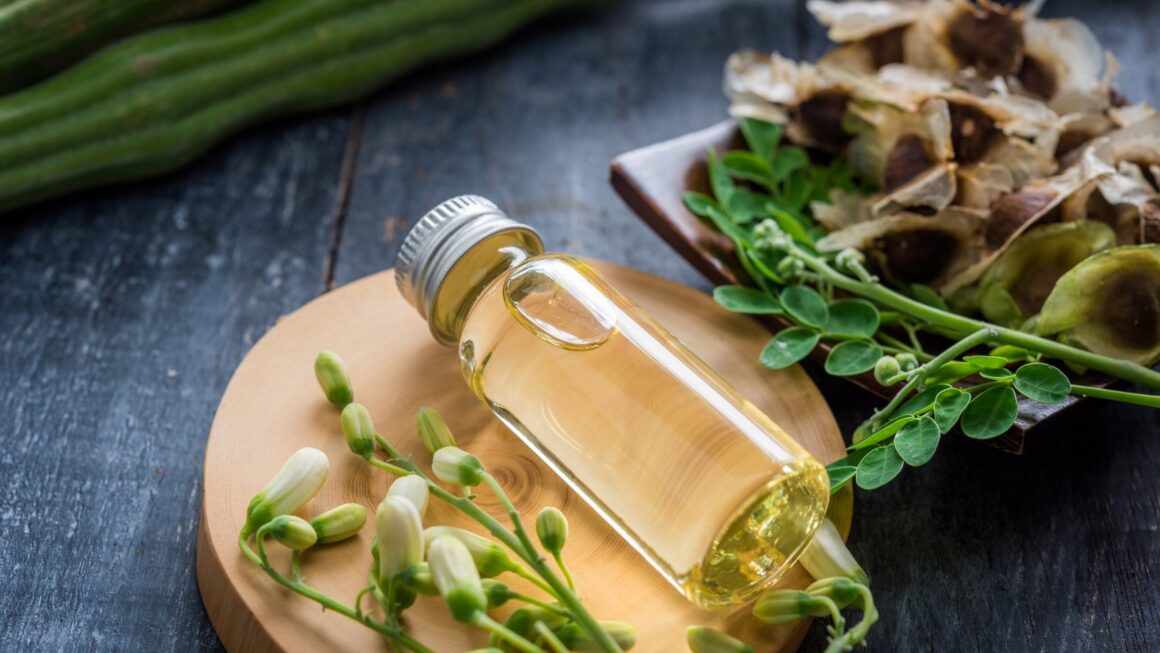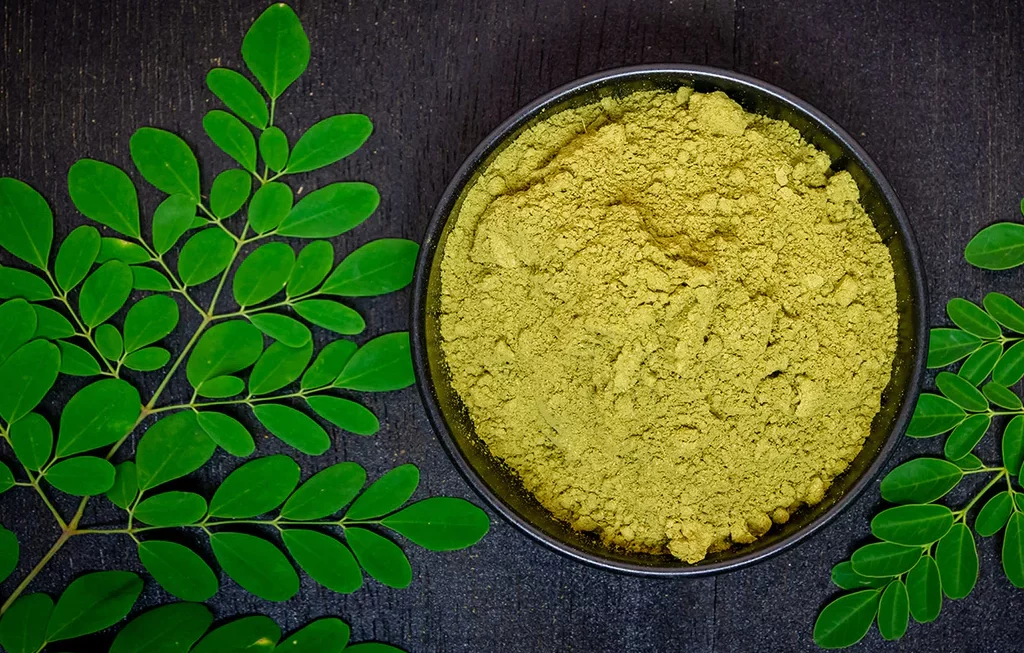“Unlock the health benefits of Nature’s Multivitamin with our comprehensive guide to Moringa Powder. Learn how this superfood can enhance your wellness routine with its rich nutritional profile and versatile uses. Explore Moringa Powder today!”
Introduction
Moringa Powder: The Ultimate Green Superfood introduces Moringa powder as a nutrient-dense supplement. A Snapshot of Moringa’s Incredible Health Benefits provides a quick overview of the wide-ranging positive effects Moringa powder has on health.
Table of Contents
The Nutritional Profile of Moringa Powder
- Vitamins: Moringa powder is an excellent source of many vitamins, particularly vitamin A, vitamin C, and vitamin E. Vitamin A is crucial for maintaining healthy vision, skin health, and immune function. Vitamin C supports your immune system, helps in the absorption of iron, and is an essential antioxidant that protects the body’s cells from damage. Vitamin E, also an antioxidant, plays a role in immune function and skin health.
- Minerals: The powder is rich in a range of minerals such as calcium, potassium, iron, magnesium, phosphorus, and zinc. Calcium is vital for bone health and muscular function. Potassium helps to regulate fluid balance and blood pressure. Iron is essential for the formation of hemoglobin and oxygen transport in the body. Magnesium supports hundreds of biochemical reactions in the body, including energy creation and muscle movements. Phosphorus contributes to the formation of bones and teeth, and zinc is crucial for immunity, DNA synthesis, and cell division.
- Protein: Moringa powder is a good source of plant-based protein, containing all nine essential amino acids. This makes it particularly valuable for vegetarians and vegans who may need to find alternative protein sources to meat and dairy products.
- Antioxidants: Antioxidants are compounds that fight free radicals in your body, preventing cell damage and inflammation. Moringa powder contains several powerful antioxidants, including quercetin, chlorogenic acid, and beta-carotene. Quercetin may help to lower blood pressure, chlorogenic acid has been shown to moderate blood sugar levels after meals, and beta-carotene supports eye health.
- Fiber: Moringa powder is also a good source of dietary fiber, which is important for digestive health. Fiber helps to prevent constipation, supports a healthy gut microbiome, and may aid in weight management by promoting feelings of fullness.
- Amino Acids: The presence of all essential amino acids in Moringa powder makes it a complete protein source, supporting muscle repair, growth, and maintenance. Amino acids are the building blocks of proteins, which are needed for virtually every bodily function.
- Omega-3 Fatty Acids: Though not as commonly highlighted, Moringa powder contains alpha-linolenic acid, a type of omega-3 fatty acid. Omega-3s are crucial for brain health, reducing inflammation, and may lower the risk of heart disease.
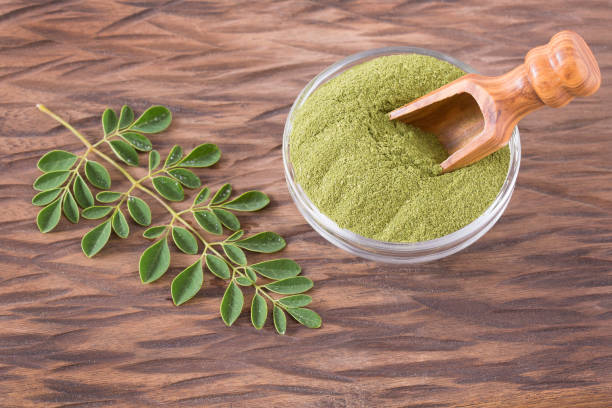
Health Benefits of Moringa Powder
- Boosts Immune System: Moringa powder is packed with vitamin C and other essential nutrients that play a critical role in bolstering the immune system. Regular consumption can help strengthen your body’s natural defenses against infections and diseases.
- Enhances Energy Levels: Unlike energy drinks or caffeine, Moringa provides a natural energy boost without the crash. Its high iron content helps in combating fatigue and lethargy by improving hemoglobin levels and oxygen distribution to the body’s tissues.
- Promotes Healthy Skin and Hair: The high levels of vitamins A and E in Moringa powder support skin and hair health. Vitamin A is vital for cell growth and skin renewal, while Vitamin E protects the skin from oxidative stress, aiding in the prevention of premature aging and promoting a healthy scalp.
- Supports Digestive Health: Moringa powder is a good source of fiber, which aids in maintaining a healthy digestive system. Fiber helps in regular bowel movements, preventing constipation, and promoting a healthy gut microbiome.
- Anti-inflammatory Effects: The isothiocyanates found in Moringa powder are known for their anti-inflammatory properties. Chronic inflammation is linked to many health conditions, and by reducing inflammation, Moringa can help prevent the onset of related diseases.
- Lowers Blood Sugar Levels: Several studies have shown that Moringa powder can help reduce blood sugar levels, making it beneficial for people with diabetes. The plant compounds found in Moringa, such as isothiocyanates, can help in lowering glucose levels in the blood.
- Improves Heart Health: The antioxidants in Moringa powder can help in preventing the oxidation of cholesterol in the blood, which is a leading cause of heart disease. Furthermore, Moringa has been found to reduce blood pressure, a significant risk factor for heart disease.
- Rich in Antioxidants: Moringa powder contains several antioxidant compounds, such as quercetin and chlorogenic acid, which help in protecting the body against damage from free radicals. These antioxidants can reduce oxidative stress, lowering the risk of chronic diseases such as heart disease and type 2 diabetes.
- Supports Weight Management: The fiber content in Moringa powder can aid in weight management by promoting feelings of fullness, reducing the likelihood of overeating. Additionally, its high nutrient content supports metabolism and energy levels, aiding in weight loss and management.
- Bone Health: Moringa powder is rich in calcium and phosphorus, which are essential for healthy bone development and maintenance. Regular consumption can contribute to stronger bones and may help prevent conditions such as osteoporosis.
- Mood Enhancement: Moringa powder has been linked to mood improvement, thanks to its high magnesium content that can help in managing stress and anxiety. Magnesium plays a critical role in brain function and mood regulation.
Moringa Powder in Traditional Medicine
Ayurvedic Medicine
In Ayurveda, one of the world’s oldest holistic healing systems originating in India, Moringa is known as “Shigru” and is celebrated for its anti-inflammatory and antiseptic properties. It has been used to treat arthritis, anemia, asthma, and digestive disorders. Ayurvedic texts praise its ability to balance the doshas (body energies: Vata, Pitta, and Kapha), thereby improving overall health and vitality.
African Traditional Medicine
Across many African cultures, Moringa has been a staple in treating malnutrition, thanks to its high nutrient content. Traditional healers have also utilized Moringa to manage or treat diabetes, hypertension, and infections. In some regions, Moringa leaves are applied directly to wounds to promote healing and prevent infection, showcasing its antiseptic qualities.
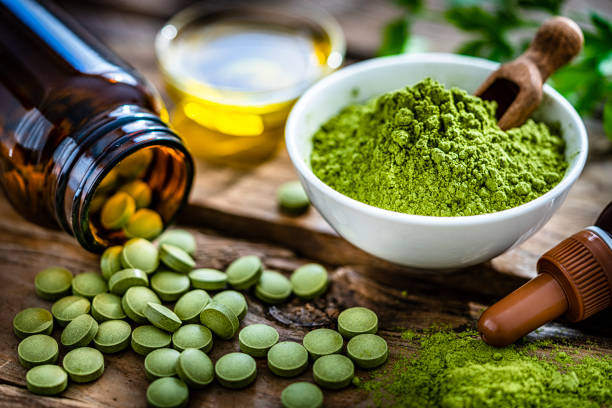
Siddha Medicine
Siddha, another traditional medicine system from South India, employs Moringa in a variety of ways. It is particularly noted for its use in treating sexual dysfunction and enhancing libido. Siddha practitioners have also relied on Moringa to treat skin diseases, diabetes, and eye disorders.
Other Traditional Practices
In the Philippines, Moringa leaves are traditionally used as a lactation enhancer for breastfeeding mothers. In many Caribbean nations, Moringa is used to lower blood pressure and as a sleep aid. Throughout South America, it’s known for its ability to detoxify the body and as a nutritional supplement to boost the immune system.
Modern Applications
Today, the traditional uses of Moringa are supported by scientific research that highlights its rich nutritional profile and bioactive compounds. Moringa powder, with its concentrated form of the plant’s beneficial properties, has become a popular dietary supplement worldwide. It’s used not just for its nutritional benefits but also for its potential in managing and preventing diseases consistent with its traditional uses, such as anti-inflammatory, antidiabetic, antioxidant, and antimicrobial effects.
How to Incorporate Moringa Powder into Your Diet
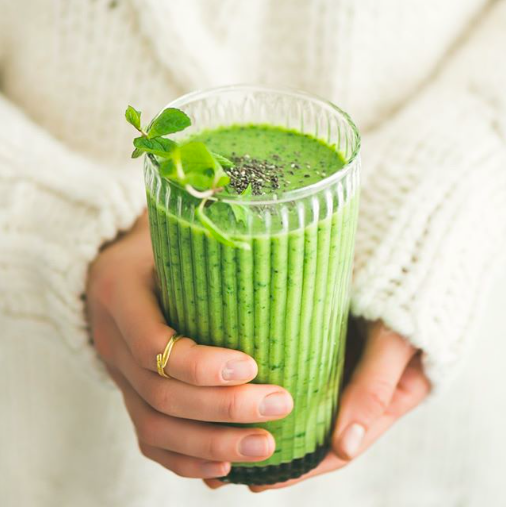
1. Smoothies and Juices
One of the simplest ways to consume Moringa powder is by adding it to your morning smoothie or juice. Its powder form mixes well with liquids, making it an easy addition. For a nutrient-packed start to your day, blend 1 teaspoon of Moringa powder with your favorite fruits, vegetables, and a liquid base (such as water, milk, or almond milk). The powder’s subtle flavor pairs well with spinach, kale, pineapple, banana, and mango, offering an extra health kick to your drink.
2. Teas and Lattes
Moringa powder can be whisked into hot water to create a soothing herbal tea, perfect for relaxing in the evening or recharging during a busy day. For a more indulgent option, mix Moringa powder into a warm, plant-based milk to make a Moringa latte. Add a dash of honey or maple syrup and a sprinkle of cinnamon for a cozy and nutritious beverage.
3. Soups and Salads
Incorporate Moringa powder into your meals by sprinkling it into soups and salads. The powder’s nutrients are heat stable, making it suitable for cooking and baking. Add Moringa powder to soup recipes during the last few minutes of cooking to preserve its nutritional content. For salads, whisk Moringa powder into your salad dressing for an extra dose of vitamins and minerals.
4. Baking Recipes
Moringa powder can be added to baked goods such as bread, muffins, and pancakes. Simply mix a tablespoon of Moringa powder into the dry ingredients of your favorite recipe. Not only does it increase the nutritional value, but it also gives your baked goods a vibrant green hue, making them visually appealing and delicious.
5. Energy Bars and Balls
For a quick and healthy snack, incorporate Moringa powder into homemade energy bars or balls. Combine the powder with nuts, seeds, dried fruits, and a binder like honey or peanut butter. Roll the mixture into balls or press it into a pan and cut it into bars for an on-the-go snack packed with energy and nutrients.
6. Yogurt and Oatmeal
Enhance your breakfast or snack by stirring Moringa powder into yogurt or oatmeal. The powder mixes easily, adding a nutritional boost to these simple foods. You can also top it with fresh fruits and nuts for added texture and flavor.
7. Cooking Greens
Mix Moringa powder into dishes that already feature leafy greens. It complements the flavors of spinach, kale, and collard greens well. Stir it into sautéed vegetables, quiches, or scrambled eggs to enrich your meals with its healthful benefits.
Comparing Moringa Powder to Other Superfoods
Moringa Powder vs. Spirulina
- Nutritional Content: Both Moringa and Spirulina are excellent sources of vitamins and minerals. Spirulina, a type of blue-green algae, is renowned for its protein content, offering all essential amino acids, making it a complete protein source. Moringa, while also containing protein, is particularly rich in vitamins A and C, calcium, and potassium. Spirulina contains higher amounts of B vitamins, especially B12, making it popular among vegetarians and vegans.
- Antioxidant Levels: Moringa is high in antioxidants such as quercetin, chlorogenic acid, and beta-carotene, which help combat oxidative stress and inflammation. Spirulina also contains powerful antioxidants, including phycocyanin, which not only gives it its distinctive blue-green color but also possesses anti-inflammatory and antioxidant properties.
- Health Benefits: Both superfoods offer extensive health benefits, including immune support, improved energy levels, and reduced inflammation. Spirulina has been studied for its effects on cholesterol and blood pressure, showing potential heart health benefits. Moringa, on the other hand, has been noted for its ability to lower blood sugar levels and support healthy skin and hair.
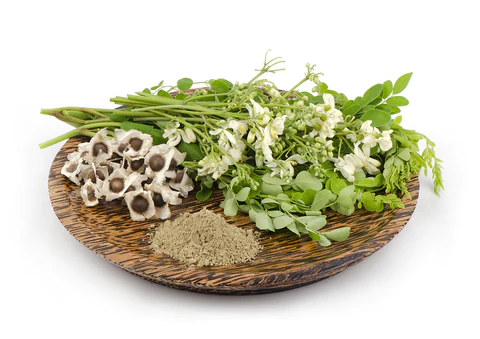
Moringa Powder vs. Chia Seeds
- Nutritional Content: Chia seeds are lauded for their high omega-3 fatty acid content, fiber, protein, and calcium. Moringa powder, while also rich in calcium and protein, stands out for its vitamin A and C content. Both are excellent sources of dietary fiber, though chia seeds particularly shine in this category, offering significant benefits for digestive health.
- Health Benefits: Chia seeds contribute to heart health through their omega-3 fatty acids, which can reduce inflammation and are beneficial for brain health. They also help in weight management due to their high fiber content, which promotes satiety. Moringa’s broad spectrum of vitamins and minerals supports overall health, from immune function to bone health and beyond.
Versatility in Diet
- Moringa Powder can be easily added to smoothies, juices, teas, and cooked dishes without significantly altering the taste. Its powder form allows for seamless integration into a wide variety of meals.
- Spirulina is commonly added to smoothies and juices but has a strong flavor that may not be palatable to everyone. It’s often available in tablet form for those who wish to avoid its taste.
- Chia Seeds can be used in both sweet and savory dishes, from puddings and smoothies to breads and salads. They absorb water and form a gel-like consistency, making them a popular thickening agent.

Where to Find and How to Choose High-Quality Moringa Powder
Where to Find Moringa Powder
1. Health Food Stores Many health food stores stock Moringa powder due to its rising popularity as a nutritional supplement. These stores often provide a range of products from reputable brands that focus on organic and natural products.
2. Online Retailers Online shopping offers a convenient way to access a wide variety of Moringa powder products. Platforms like Amazon, health-specific e-commerce sites, and the websites of Moringa product manufacturers are excellent places to start. Shopping online also allows you to easily compare prices, reviews, and product certifications.
3. Specialty Stores Specialty stores focusing on dietary supplements, organic foods, or products from specific regions where Moringa is grown, like Africa or India, may offer high-quality Moringa powder. These stores often have knowledgeable staff who can provide valuable advice on choosing the right product.
4. Local Farmers’ Markets In some areas, local farmers’ markets may sell Moringa powder, especially in regions where Moringa trees are grown. This can be a great way to support local farmers and ensure the freshness of the product.

How to Choose High-Quality Moringa Powder
1. Look for Organic Certification Organic certification ensures that the Moringa powder is produced without synthetic fertilizers, pesticides, or genetically modified organisms (GMOs). This can also indicate a higher quality product that’s more likely to retain its nutritional value.
2. Check the Source High-quality Moringa powder often comes from countries with ideal growing conditions for the Moringa tree, such as India, the Philippines, and parts of Africa. Knowing where your Moringa powder is sourced can give insights into its quality and sustainability.
3. Examine the Color and Texture Premium Moringa powder should have a vibrant green color and a fine, smooth texture. A dull color or coarse texture may indicate poor processing methods or that the powder has been mixed with fillers.
4. Read the Label for Additives The ingredient list should be short and straightforward – ideally, the only ingredient should be 100% Moringa leaf powder. Avoid products with added fillers, sugars, or preservatives.
5. Consider the Packaging Moringa powder should be packaged in airtight, opaque containers to protect it from light and moisture, which can degrade its nutritional quality. Resealable bags or containers are preferable for maintaining freshness.
6. Review Brand Reputation and Reviews Research the brand to ensure they have a good reputation for quality and safety. Online reviews and testimonials can provide insight into customer satisfaction and product efficacy.
7. Verify Third-Party Testing Some brands go the extra mile by having their Moringa powder tested by third-party organizations for purity and potency. This testing can provide an additional layer of assurance about the product’s quality.
Conclusion
Moringa Powder: The Green Superfood for Everyone encourages readers to explore the benefits of Moringa powder for themselves, highlighting its accessibility and potential to improve overall health.
Source to Get Organic Moringa Leaf Powder Capsules
FAQs about Moringa Powder
1. What is Moringa powder made from? Moringa powder is made from the dried leaves of the Moringa oleifera tree, often referred to as the “miracle tree” due to its highly nutritious leaves. The leaves are dried and then ground into a fine powder, preserving their rich nutritional profile.
2. How does Moringa powder benefit health? Moringa powder is packed with vitamins, minerals, antioxidants, and amino acids. It supports immune function, reduces inflammation, improves digestive health, enhances energy levels, and contributes to healthy skin and hair. Its rich nutrient content also helps in managing blood sugar levels, supports bone health, and may have beneficial effects on heart health.
3. Can Moringa powder help with weight loss? While Moringa powder itself is not a weight-loss miracle, its high fiber content can help you feel fuller for longer, potentially reducing overall calorie intake. Additionally, its high nutrient content supports metabolic health, which can aid in weight management when combined with a healthy diet and exercise.
4. How should I store Moringa powder to maintain its freshness? Moringa powder should be stored in a cool, dry place away from direct sunlight. It’s best kept in an airtight container to protect it from moisture and preserve its nutritional quality. Properly stored, Moringa powder can last for several months.
5. How much Moringa powder should I consume daily? The recommended daily dosage of Moringa powder can vary depending on the individual’s health status and nutritional needs. Generally, starting with one teaspoon (approximately 3 to 5 grams) per day is advised, and you can gradually increase to two teaspoons if well-tolerated. Always consult with a healthcare provider before adding new supplements to your diet, especially if you have underlying health conditions.
6. Are there any side effects of consuming Moringa powder? Moringa powder is considered safe for most people when consumed in moderate amounts. However, due to its high vitamin and mineral content, excessive consumption may lead to gastrointestinal upset, such as diarrhea or stomach cramps. Pregnant and breastfeeding women should consult a healthcare professional before using Moringa powder, as certain compounds in the plant may not be suitable for them.
7. Can Moringa powder be added to any type of diet? Yes, Moringa powder is versatile and can be incorporated into various diets, including vegetarian, vegan, gluten-free, and paleo diets. Its plant-based origins and absence of gluten make it suitable for people with dietary restrictions or preferences.
8. Is Moringa powder suitable for children? Moringa powder can be a nutritious supplement for children, contributing to their intake of vitamins, minerals, and proteins. However, due to its potent nutrient content, it’s important to use it in smaller quantities for children. Consult with a pediatrician or nutritionist to determine an appropriate dosage based on the child’s age and nutritional needs.
